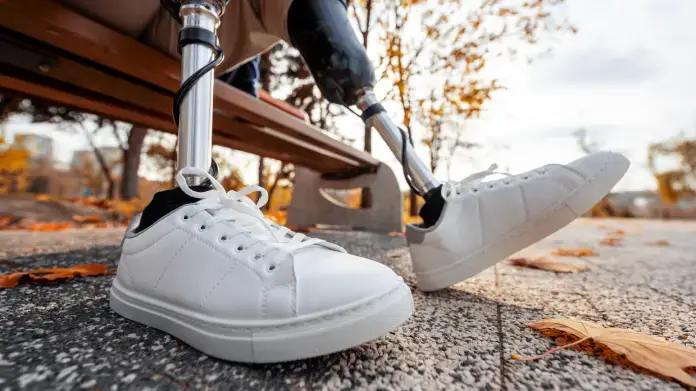Amputation and Social Security disability benefits. If you have an amputation, you could be eligible for Social Security Disability benefits if your limitations prevent you from working.
Having a finger or toe amputated causes different limitations than having a foot, hand, leg, or arm amputated.
Therefore, Social Security does not automatically find a person disabled if they have had any amputation, but some criteria must be met.
Under Social Security’s Listing of Impairments, amputations are evaluated at Listing 1.05.
Social Security Disability: Claim Denied?
Need Help With Application?
Don't get frustrated! At our law firm, it's our mission to professionally represent our disabled clients, as well as their families, and work hard to get you the benefits you deserve.
or Email us.
To meet this listing, a claimant must have either amputation of:
- Both hands; or
- One or both lower extremities at or above the tarsal region, with stump complications resulting in medical inability to use a prosthetic device to ambulate effectively, which has lasted or is expected to last for at least 12 months
If your condition does not fall under either of these scenarios, then Social Security will evaluate your disability claim based on the limitations your conditions cause you in a work setting.
Your Residual Functional Capacity (RFC) may be so diminished that you are unable to do your past work, or even any other work. For instance, if you have had fingers on your dominant hand amputated, you may be unable to perform fine or gross manipulation that is necessary to perform the tasks required of most jobs in the economy.
In the case of a foot or toe amputation, you may find it difficult to stand for long enough to perform jobs that are not sedentary in nature. There can be many reasons why an amputation can eliminate jobs in the national economy.
At your Social Security disability hearing, a Vocational Expert (VE) may testify as to what, if any, jobs exist for a person with such a limited Residual Functional Capacity.
In my experience, the limited use of the dominant hand for fine and gross manipulation can be the key to a successful outcome.
Many factors weigh in on your ability to receive disability benefits for an amputation, including what part of the body has been amputated, your work history, and the limitations your amputation has placed on you.
An experienced Social Security disability attorney will know what questions to ask you and make sure your case is properly presented to your Social Security judge.








